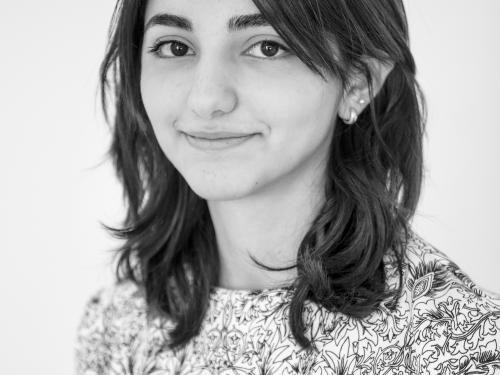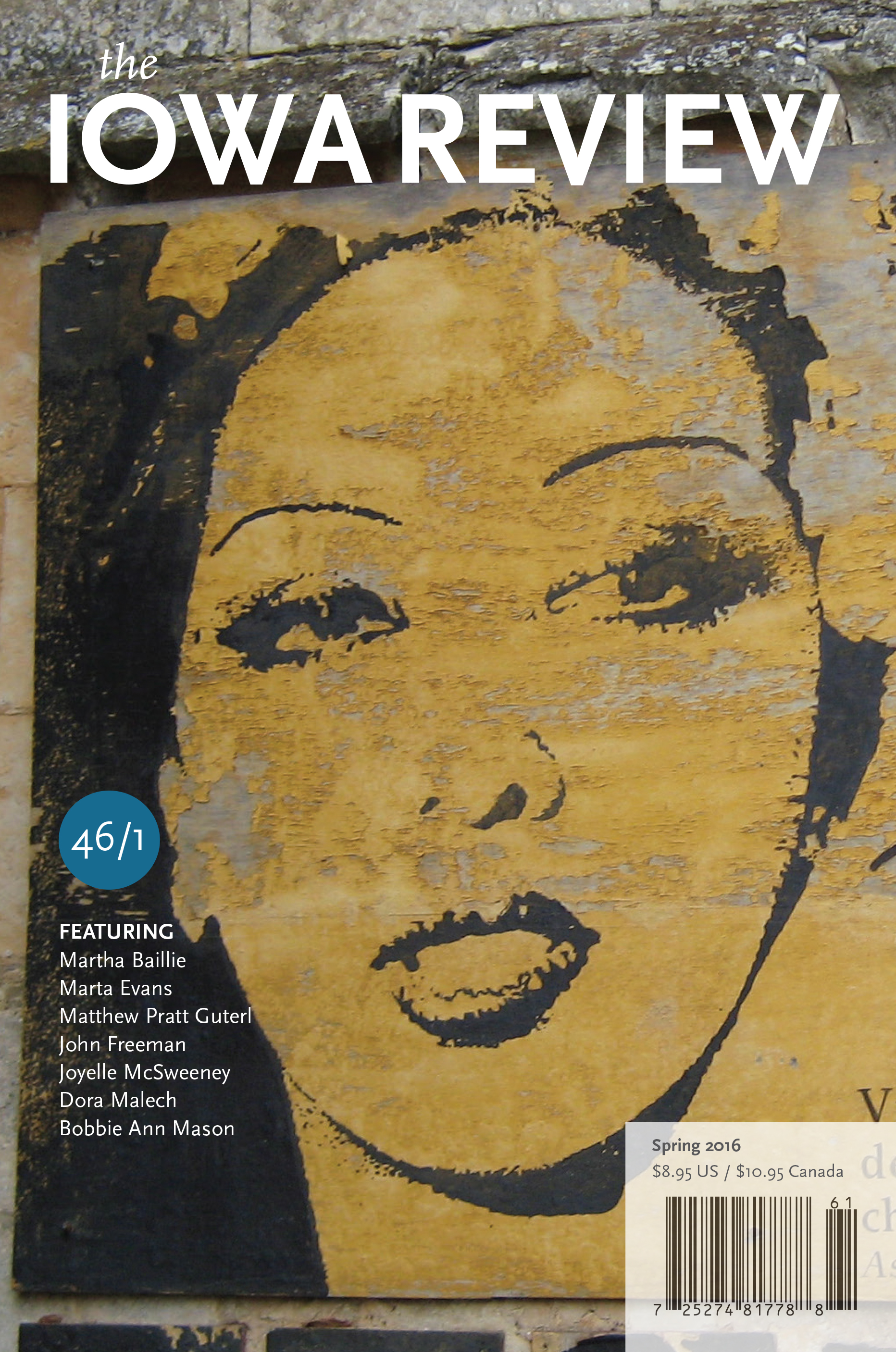
This poem is part of our spring issue's "Rising Poets of Iraq" dossier, edited by Alana Marie Levinson-LaBrosse.
Sticking with your roots, my mom always says,
but I was detached, then grafted.
I lean to one side. I bend a little at the branches.
I am the outgrowth of so many seeds
thrown together
who made this rootless tree.
Each flower, a different color:
One red, like the color of the sky
the cold night Kurdistan was left empty after The Runaway,
empty like the streets my mother left behind,
nothing left but the rain flooding them.
Another blue, like my father’s house in Samarra
where we spent our Eid
playing hide-and-seek with cousins on the roof
One had beautiful yellow petals that shifted to brown
when you looked inside,
like my sentences as a child, made up of two languages.
One white, and blank
like my face when asked what my origin is,
and I wouldn’t answer, afraid of a wrong answer.
Some looked like the gardenias we had in Baghdad,
their scent diffused all through our garden,
voluminous petals you couldn’t look away from.
The flowers were often picked,
they were too beautiful to pass by and not share with a lover.
The tree remained bare and fruitless.
The last flower was kept trapped in a book
that was never read.
*
Author Bio
Lana’s mother left Sulaimani for college in Baghdad where she met Lana’s father, an Arab man. At the wedding announcement, neighbors and friends asked Lana’s grandfather, “How can you let this happen?” He responded unfailingly, “This is a good man.” Lana was born in Baghdad, speaking Kurdish at home and learning Arabic in school. When Lana and her sister were still young and in elementary school, her father moved the family business to Dubai. The different dialects of Arabic spoken in Dubai diverged so greatly from the dialect spoken in Iraq that Lana and her sister, Sara, suffered in school. Eventually, her mother moved the girls back. To this day, she says, she can’t speak either properly. English, the language of her college education, the language she speaks with her sister, the only language she knows academically and colloquially, is her language of comfort.
People ask her now, “Are you Arab or Kurdish?” She answers the same way every time, “My mom is Kurdish, my dad is Arab.” She noticed, when she arrived in Sulaimani for college, the tension between the two populations. “I feel safe standing in between,” she says. “I belong to both sides. I like that we can’t take sides. Well, I sort of like it.” She feels belonging in both groups, and yet, lately, Kurdish friends will stop themselves as they make fun of Arabs. “No offense, Lana,” they will say. “Don’t worry, you’re not like them.”
As much as she loves the many places and people who have made her, she still says, “To this day, I really don’t know what I am.” She grew up with her mother reinforcing her Kurdish identity, but she feels Iraqi. She wants no more questions. She’s Iraqi. Don’t ask if that means she’s Kurdish or Arab. She doesn’t know if she should even say it—she doesn’t want to be seen as failing to support the Kurdish independence movement—but she doesn’t want any more fighting between the two groups. Within her own family, she sees all that Iraqis share in microcosm.
She first started reading when her sister would come home from the Virgin Megastore and give her books. Now, though, after several semesters of reading on her own, she has discovered Allen Ginsberg. “He’s fast-paced, I like that, and his poems are brave—not brave, but different. He’s dark. He makes me feel wild.”
